Posted on July 2, 2020 | Link to original
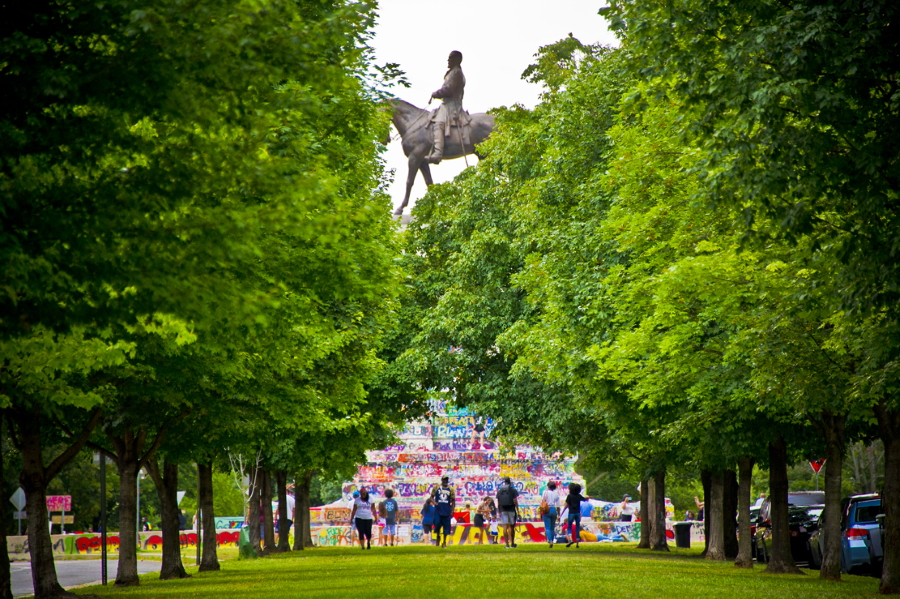
Dear Friend and Reader:
This weekend is the 244th anniversary of the founding of the United States, usually counted from the date written on the Declaration of Independence.
The U.S. is now well into its Pluto return, an event that has never happened in our history. If we seem to be going through a little extra chaos related to a problem most of the world has already solved, we might consider that astrology.
In all ways, the American Dream is now facing tough times, and some would say it’s dead. I don’t think that’s true, though at the moment, it’s being eaten alive by greed, fear and incompetence.
You could say that was always true, though we’re in an unusual moment now, where so much is at stake, and so much has already been lost, as tens of millions of people file unemployment claims in our newly reset economy.
The only way to get out of that is going to be envisioning something different, maybe better, maybe enough to get by.
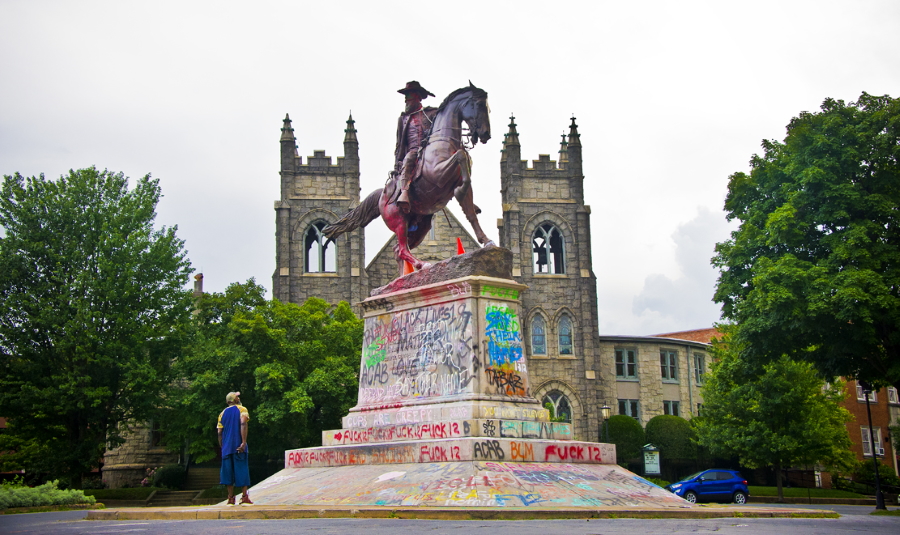
Aspiring to Liberty, Enlightening the World
For a long time, most of the 20th century and some of the 21st, the American Dream was a kind of World Dream: people loved our Elvises and Hula Hoops and the frontier spirit of the Wild West. They loved our Rough Riders and our New Deal and our role as the supposedly good cop on the global scene.
Our Statue of Liberty Enlightening the World (a gift from France) was, if not a representation of truth, something to aspire to. In fact, countless millions of people have come to the United States for a better life, and many have found it: an historical fact we do not share with many other places, and that many are loath to admit.
Along the way, we seduced the world with Jack Kerouac going On The Road, and with Jack Kennedy and Marilyn and Annette Funicello, and Lassie and Farrah Fawcett. We gave the world Babe Ruth and also Jackie Robinson.
Everyone knows who Neil Armstrong was, and what Woodstock was. Throughout the Western world, many people can sing at least a line of one Bob Dylan song — probably more. And whoever has been touched by any of these people has a little piece of the American Dream in their heart.
The United States is often accused of not having a culture, but that’s laughable. Lou Reed could stand face-to-face with all of British rock — and his most famous song is about a transvestite named Holly from Miami.
When most people outside the United States love the concept of our country, much of what they love is our culture but also the expressive freedom we have to say and do the kinds of things that can be said and done here. Nearly every country I’ve ever visited seems at least a little envious of American society and our concept of freedom, or aspires to emulate it in some way: if in no more than blue jeans and the Nike swoosh.
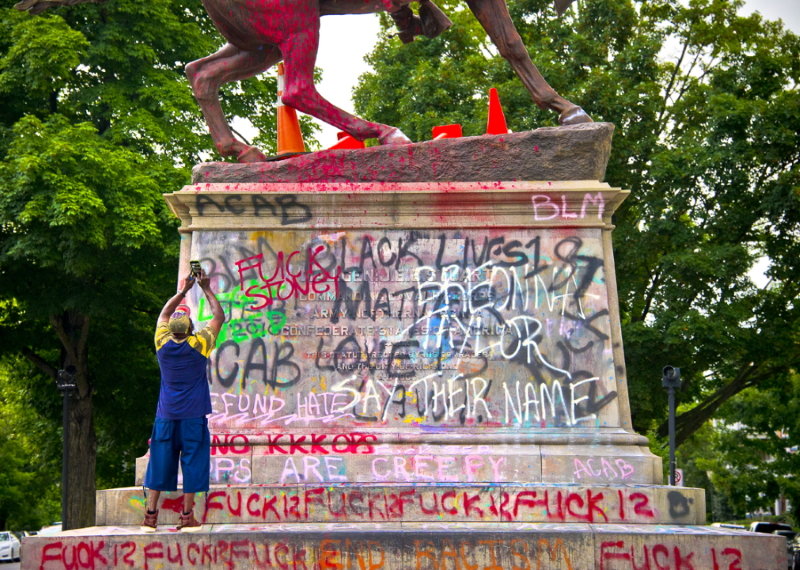
The People’s History
And then what?
Then there is the People’s History version of events, with its multiple genocides of our indigenous people, and the buffalo, and the festering wounds of slavery and Jim Crow that lay as open as the incomplete post-Civil War Reconstruction.
James Baldwin (1924-1987), the African-American writer, was once asked his definition of liberty. “That’s quite a question,” he replied. “I suppose nobody really asks themselves that question. Well, I can always quote the Declaration. ‘We hold these truths to be self-evident: that all men are created equal’. And the moment I do that, I’m in trouble again, because obviously I was not included in that pronouncement.”
Actually, some people do ask themselves that question, and they mean it, and they want an answer. Sometimes we need to be reminded to ask. For people who do not feel free, which could be anyone, it’s a sensitive topic.
Baldwin said later in the same interview, conducted for a 1985 documentary on the Statute of Liberty: “Liberty is the individual will or passion to be free. But this will is always contradicted by the necessities of the state, everywhere, for as long as we’ve heard of mankind, for as long as we’ve heard of states. I don’t know if it will be like that forever. For a black American, for a black inhabitant of this country, the Statue of Liberty is simply a very bitter joke, meaning nothing to us.”
Yet Baldwin recognized his liberty, and he took it. He was born in Harlem and rose from poverty, choosing his career: he decided not to be a minister (as his stepfather wanted) but rather a writer who took on challenging themes of racial and sexual identity. He was respected and financially successful. That is unusual for any writer. He is remembered today. That is also unusual.
His early writing first appeared in a high school publication — a distinctly American innovation, rooted in our commitment to freedom of speech, such as it is. When he was ready, he left the United States and moved to France — the same country that gifted us the Statue of Liberty. One of the most important elements of freedom is the ability to get the hell out.
The American Dream is not evenly distributed, though it cracks through the pavement and thrives in some of the least likely places, and in unusual forms.
Many of the most successful entertainers, artists and athletes rose from poverty, extreme racial prejudice or ordinary middle-class life, not the social clubs of Harvard. They stand as personal testaments to the dream of liberty and success, though it’s always at a cost: the American Dream is not free and it never has been. You have to work for it. This is a different kind of work from trying to stay afloat and survive: the difference is knowing you’re working toward something.
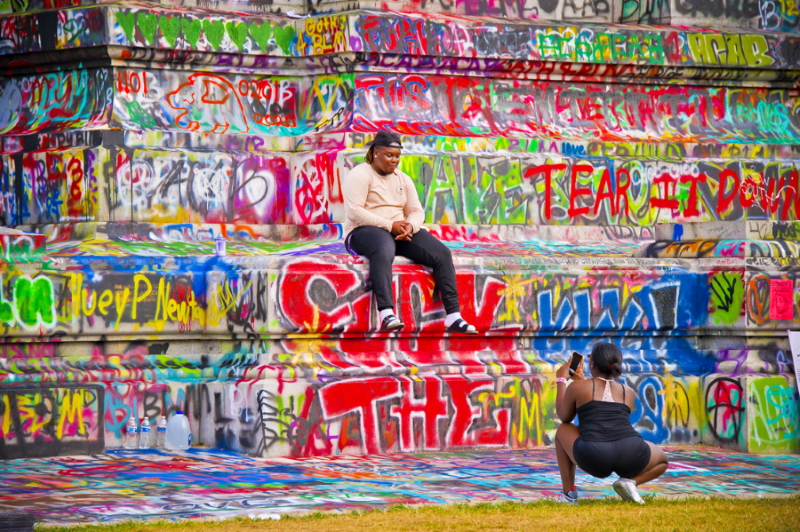
The Cost, in Blood
The cost is often paid in blood, though not only of our military.
There were the 1964 murders of James Chaney, Andrew Goodman, and Michael Schwerner, three young men who went to Mississippi during “Freedom Summer” to register black voters and were killed by white supremacists for doing so. In 1970, Alison Beth Krause, Jeffrey Glenn Miller, Sandra Lee Scheuer, and William Knox Schroeder were shot by the National Guard during a peaceful protest against the Vietnam War at Kent State University.
The Rev. Dr. Martin Luther King, Jr., Medgar Evers, Malcolm X and many others fell in the line of duty. Being a civil rights leader is so dangerous, few would go near the job.
While the U.S. fancies itself a kind of world savior, the truth also includes Hiroshima and Nagasaki; anyone who could justify the first would be morally hard pressed to justify the second.
Then came the hydrogen bomb. There was the leveling of Korea (not really a war, more of a three-year carpet bombing campaign), followed by Vietnam, Cambodia, and Laos (chemical warfare, and conventional), and the CIA overthrow of Chile (on the first 9/11, in 1973). Then came Nicaragua, El Salvador, East Timor, Iraq, Afghanistan and Iraq again.
In our lifetimes, the primary export of the United States has become bombs dropped on civilian populations and water treatment plants. OK, bombs, munitions and wheat, but that’s a hell of a price to pay for bread.
I learned in high school that the United States has 10% of the world’s population and consumes 90% of its resources. There is not much positive you can say about that; there’s no way to be proud of that. And of that 10% who consume the 90%, relatively few get to share in the rewards in a significant way. I reckon that’s not in your American Dream, nor in mine.
It’s often considered unpatriotic to acknowledge these things. I would disagree. True patriotism is knowing about them, admitting them, and still loving your country, and respecting its potential, and doing what you can to make it better. Any sensitive person has to address the shame and the horrors of the past, though that is not enough. It is going beyond them without guilt that takes courage.
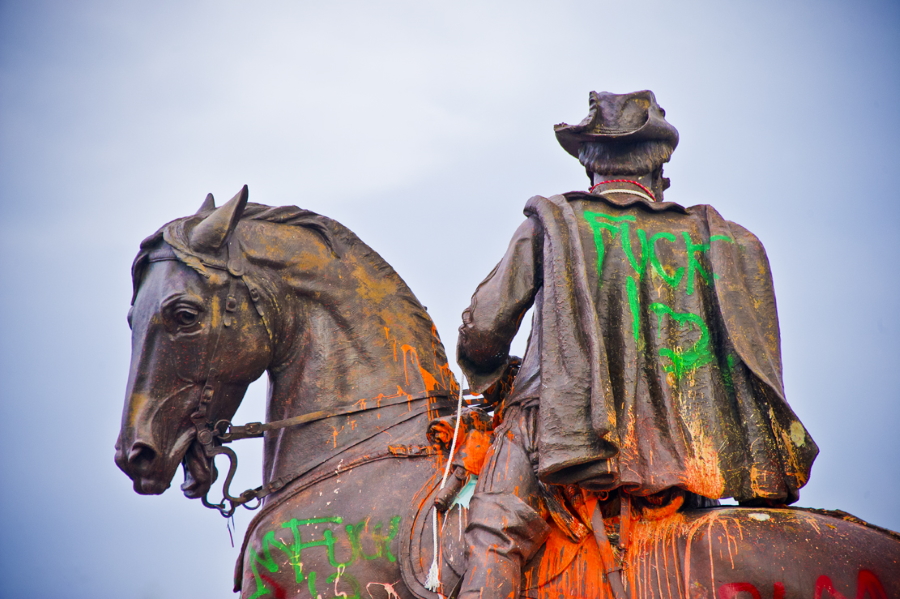
The Dream, Amidst the Wreckage
Despite the wreckage strewn all over the globe and across the landscape of our country, the dream lives on, because it has to.
The American Dream is the notion that it is possible to have one. It’s the idea that something other than what you know can happen, and that you can make it happen. The American Dream is connecting with the ability to envision the future.
I keep reading that America is in decline. I read today that the jig is up; our society loves to dance with the apocalypse, and the end has been nigh since the beginning. The American Dream is still alive as long as there’s anyone left to dream it. The American Dream is alive right now in Richmond, Virginia, where the statue of Stonewall Jackson is being torn down as I write.
The American Dream is alive in the mind of anyone who filed for a business certificate or started a company today. The American Dream is alive for anyone who applied to college or university. It’s alive for anyone who got their driver’s license today. It’s alive for anyone who is grateful to have paid the rent this month.
Then there is the version of the American Dream which is to make it, or make it big. That craving not just to survive but to thrive — to do what you want, and succeed at it.
The more compromised is our national situation, the more urgently we need the American Dream. Because that dream, that ability to envision both individual and collective life in some new way, is the only path to a future different from the past. Often individual longings have a way of morphing into collective ones that many people identify with.
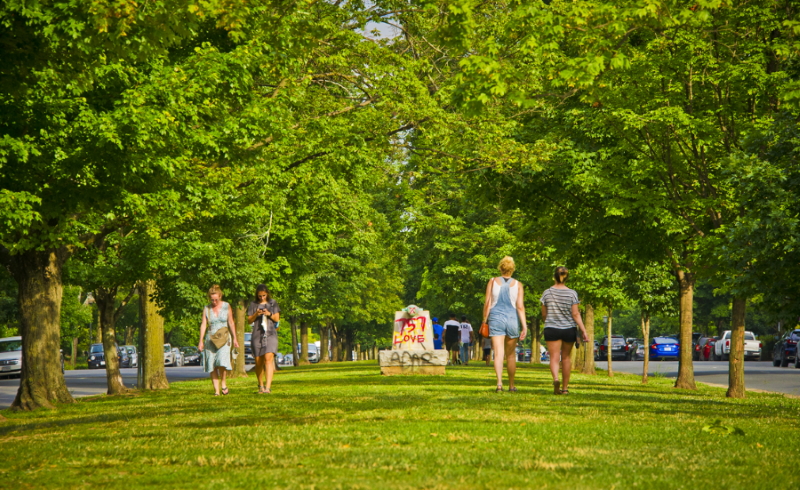
We Need a Warning Label
This should, though, come with a warning. The American Dream takes gumption: shrewd or spirited initiative and resourcefulness. That does not mean a trust fund. It means being motivated and a little clever. That might include scrimping and saving, or a bit of begging, borrowing and scavenging to get started. It helps if others trust you and you are faithful to that. Mostly you must be faithful to yourself and your purpose.
The American Dream takes chutzpah, especially when things are looking dark. And at times it takes real guts, because the one thing you can count on is a headwind, and a bit of “success breeds contempt.”
I would propose that in every new concept of this vision of the future, we make some room for the people who are not up to the task, and somehow include them: those who don’t have the guts or the cleverness, or the imagination, or who are not fool enough to try to do the impossible. I think there is a way to do this American experiment without all the competition and social Darwinism that drives at least half the population out of their sanity.
If there is one thing missing from the American Dream as it is usually expressed, that’s the one. Many people are not up to the challenge, or keep getting dealt out of the game, or keep losing. It is a harsh situation where people are underpaid and overcharged for all life amenities. Many are not equipped to cope with this, and notably, basic financial literacy is not taught in school so people have a fighting chance. In some families and some regions, poverty seems intractable over the generations.
Some are way too introverted to want to participate much, to play the game, to assert their ideas. So we cannot have a society that is just based on competition. Society must be designed with an element of nurturing those who need it, while letting the strong ones go out onto the ice and play hockey. Older people, among others, must be invited into life and not moved into contaminated nursing homes.
The reason for that is not merely some debility or incapacity. The system is rigged and stacked and we all know it. There are too many useless billionaires, arms traders, corporate drug moguls, religious hucksters and pimps. There are way too many people who think that’s just dandy, and who confuse these things with success.
Even if that were not the case, there are people who are not suited to participate directly even in a “fair” system, so society must make room for them and not make them feel bad about it. We need to open up the door, and remember that there is enough to eat. In fact there is way too much wasted food in the land where there’s always supposed to be a little extra.
How to do that is another question, though it will be easier if we all do our small part. Let’s talk about that.
With love,

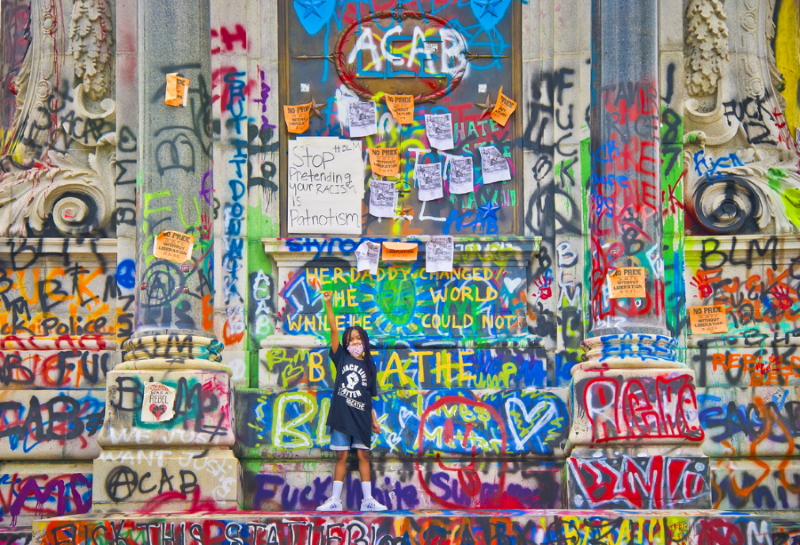



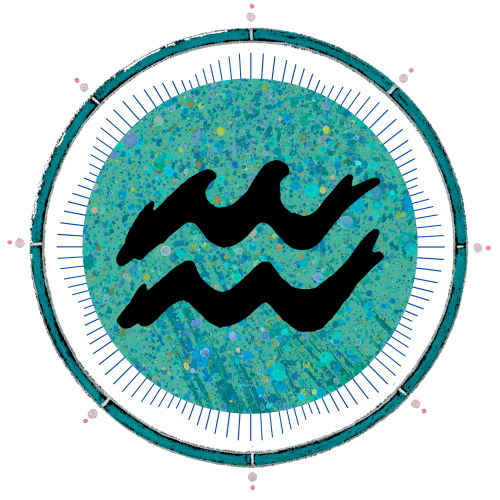
Good piece. I am not ok with much of America’s practices, but at the end of the day I am grateful to be an American. To be free and free to dare to dream is beautiful
Beautiful piece, incredibly written and so insightful. Thank you.